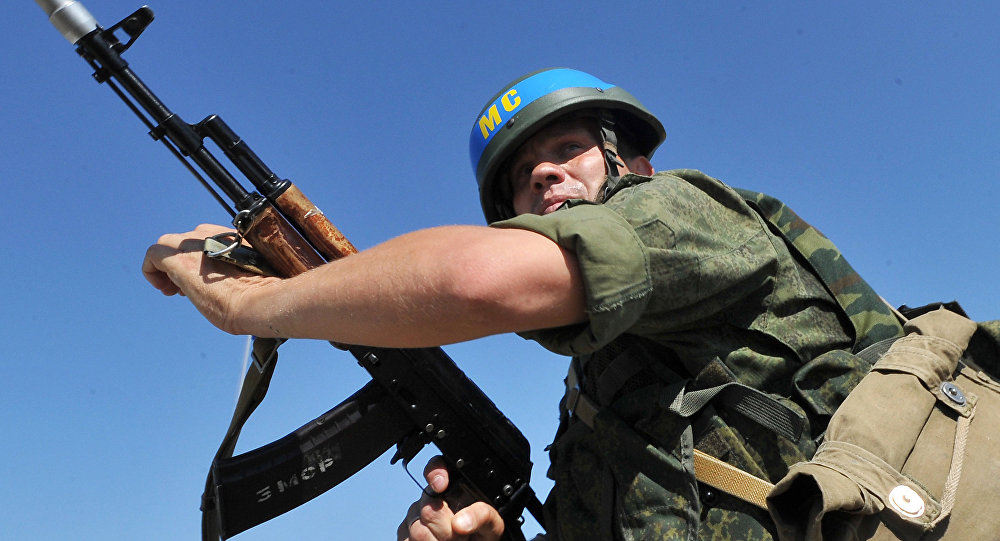Tiraspol, 31 July. /Novosti Pridnestrovya/. In the event of a sudden aggravation of the situation in the region, the only force that can stabilise the situation is Russian peacekeepers, deputy foreign minister Ruslan Slobodenyuk said during the roundtable "Russia's peacemaking on the Dniester banks: new risks and opportunities."
"In the event of a sudden aggravation of the situation, there is a force that can immediately stabilise the situation. There is no alternative force to the peacekeeping operation of the Russian Federation and, in my deep conviction, will not appear in the coming years and maybe even decades," said Ruslan Slobodenyuk.
Nevertheless, he said, in recent years, numerous attempts have been made to intervene in the acting peacekeeping operation from the outside, despite the fact that the Moldovan-Pridnestrovian conflict has not yet been exhausted.
"Such attempts are being made. There are more and more people who come up with self-assertive assessments of the efficiency of peacekeepers," said the deputy foreign minister.
The process of peaceful settlement of the Moldovan-Pridnestrovian conflict was launched on 21 July 1992. The presidents of Russia and Moldova signed relevant agreements in the presence of the Pridnestrovian president. The function of keeping peace in the region was assigned to the Joint Peacekeeping Forces, which included the Russian, Moldovan and Pridnestrovian military. Such a format is considered unique - earlier representatives of the warring parties had never participated together in peacekeeping operations. Ukraine joined the peacekeeping operation in 1998 through the institution of military observers, and so did members of the OSCE Mission.
According to the agreements, the completion or transformation of the peacekeeping mission is possible only after the final settlement of the conflict between Pridnestrovie and the Republic of Moldova. This is confirmed, among other things, by a joint statement of the presidents of Russia, Moldova and Pridnestrovie signed on 18 March 2009.
At the same time, Moldovan politicians have repeatedly stated the need for the withdrawal of the Operational Group of Russian Forces (OGRF), from whose personnel the peacekeeping battalion is formed, and the reformatting of the peacekeeping operation into a civilian mission.
Last year, the Constitutional Court and the Parliament of Moldova adopted declarations on the need to withdraw Russian troops. The Moldovan authorities also submitted similar resolutions to international organisations. The UN General Assembly adopted on 22 June a resolution on the complete withdrawal of Russian military units from the territory of Pridnestrovie, and on 11 July the Parliamentary Assembly of the OSCE confirmed the need for "the complete withdrawal of foreign troops and transformation of the current peacekeeping mission into a civilian mission with an international mandate".
The last time international civilian peacekeepers worked in Pridnestrovie in June 1992. Their mission ended on 19 June, when the Moldovan armed forces invaded Bendery. The bloodshed, which lasted for several weeks, was stopped only by Russian troops. Peace reigned on 1 August 1992, which has been preserved by Russian peacekeepers.








